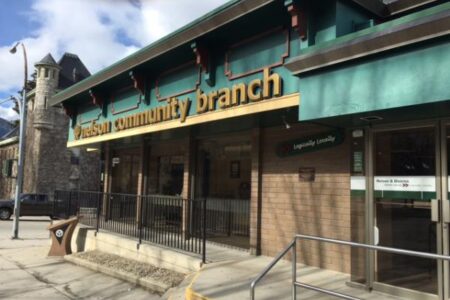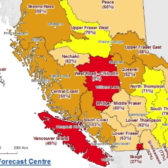Op/Ed: The LNG dream remains in the spin cycle
It seems like only yesterday that British Columbians were being told that the province was on the cusp of LNG riches. In fact, it almost was.
Last October, Finance Minister Mike de Jong predicted: “We are poised to see the final steps taken. Every step of the way, there have been detractors and naysayers and people who have dismissed the opportunities.”
Those final steps hit a speed bump last Friday when the Hawaii Public Utilities Commission nixed NextEra Energy’s proposed $4.3 billion purchase of Hawaiian Electric Industries.
The decision effectively scuttled a 20-year agreement for Fortis to sell LNG to Hawaiian Electric that had been announced eight weeks earlier with all the customary fanfare.
Natural Gas minister Rich Coleman boasted that the announcement “showcases British Columbia’s capacity to supply clean energy to new markets.”
His statement left a few things out, though. The devil is in the details.
The deal had a few hurdles to clear. Specifically, this one from Fortis’s news release: “the agreement outlines the conditions to be met…including the approval of the merger of Hawaiian Electric and NextEra Energy Resources.”
Both parties knew that approval was no slam dunk.
Last August, the state’s governor, David Ige, made it clear that “Any time and money spent on LNG is time and money not spent on renewable energy and that his administration will actively oppose the construction of any future LNG receiving stations.”
Fridays, well known in politics as taking out the trash day, lived up to its name last week.
The news out of Honolulu, Hawaii broke in B.C. at 8 p.m.
The merger was kaput. The export deal – a long shot at best – was pronounced dead this week.
B.C.’s long-promised pot of liquid gold has now passed through pretty well all the spin cycles.
In its 2013 election platform, the B.C. Liberal party pledged the LNG industry would create $1 trillion in economic activity and a $100 billion prosperity fund.
Speaking directly to detractors, the promise came with a tag line: “It’s no fantasy.”
The party’s campaign still referenced the B.C. government’s 2012 Labour Market outlook, which predicted the LNG industry would create up to 100,000 jobs.
A forecast scaled back after the election to something more resembling a footnote. “The Province continues working closely with the industry to maintain and update occupational workforce projections for the LNG sector. However, these projections will factor into the Labour Market Outlook only once there is a final investment decision on one or more projects.”
There was the periodic tease.
Premier Christy Clark continued to proclaim that the LNG industry had the power to fight air pollution in China, clear up smog in Los Angeles and finance increased support for the disabled.
Naysayers such as the Australia-based Macquarie Group, the Paris-based International Energy Agency (IEA) and Bloomberg News were dismissed out of hand.
Despite countless reports that the world faces a glut of LNG, the government’s website to this day proclaims that “Global trade in liquefied natural gas doubled between 2000 and 2010 and is expected to increase by another 50 per cent by 2020.”
The Macquarie Group suggested earlier this year that solutions to address the over supply “would be for certain LNG expansions not to happen or for existing capacity to be closed.”
In its November 2014 World Energy Outlook, the IEA reported that Canadian LNG costs could be among highest in the world, pegging the export price at between $13 and $14/MBtu (million British thermal unit).
LNG’s spot price is currently less than $5.00 MBtu.
Other developments, such as the Russia-China gas deal in 2014 and Japan’s restart of its nuclear energy facilities, never factored into the government’s thinking.
B.C. may still see an LNG plant, but as for that $1 trillion in economic activity and $100 billion prosperity fund the only thing left is to call time of death.
It turned out to be a fantasy, after all.
There’s an upside for the government. The public never bought the hype in the first place.
A
ccording to a 2014 Insights West poll, “only 28 per cent of British Columbians trusted the provincial government when it comes to properly handling decisions about the fledgling liquefied natural gas sector.”
Dermod Travis is the executive director of IntegrityBC.

























